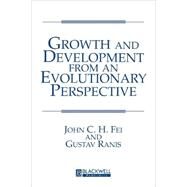- ISBN: 9780631218890 | 0631218890
- Cover: Paperback
- Copyright: 11/22/1999
We are currently experiencing a revival of interest in development, partly as a consequence of recent work in the so called new growth theory arena, and partly because the recent debt crises has focused attention on the adjustment problems of the third world and on the policy lessons to be learned from the East Asian experience. This volume traces the evolution of relevant development theory from the Physiocrats and the Classical School, to Solow, Arthur Lewis and, finally, Lucas and Roemer. The central purpose in doing so is to borrow and on occasion adapt the various tool kits offered to improve our current understanding of the development process which we see, in Simon Kuznets' terminology, as a transition from agrarianism to modern economic growth.The theoretical chapters of the volume focus first on an analysis of closed and open agrarian societies, still relevant to many parts of sub-Saharan Africa, and on the conditions for graduation from agrarianism to dualism. We then turn to an examination of dualism in both the closed and open economy settings and to the requirements for successful graduation into economic maturity. In doing so we develop a general system of growth equations which bring into focus the central role of technology change and can be applied, with modifications, to the various sub-phases of transition as well as to the modern growth epoch. We subsequently deploy our analytical tools to examine developmental performance in the broader context including the contemporary concerns with distribution, poverty alleviation and human development, as they relate to growth over time.Finally, we turn our attention to the policy implications of our view of the development process, emphasizing a comparison between the successful East Asian and the less successful Latin American cases. The volume concludes with a demonstration of how political economy considerations permit us to move towards an enhanced endogenization of policy choices. Throughout the book has a strong analytical orientation but is sensitive to historical time and typological differences across developing societies.






